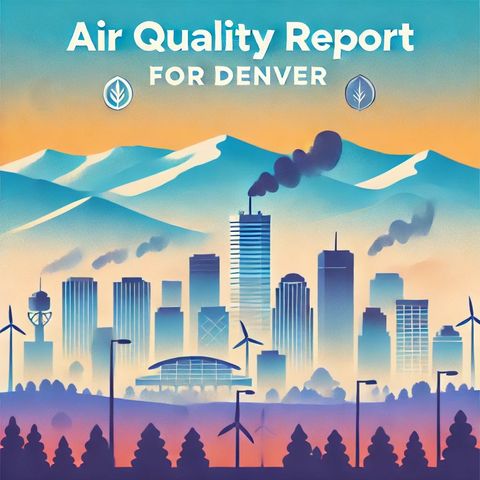Rocky Mountain City Grapples with Persistent Air Quality Challenges

Descarga y escucha en cualquier lugar
Descarga tus episodios favoritos y disfrútalos, ¡dondequiera que estés! Regístrate o inicia sesión ahora para acceder a la escucha sin conexión.
Descripción
I'm unable to provide real-time data or search the internet, but I can offer general information about air quality in Denver. Denver is known for its stunning backdrop of the...
mostra másOne of the primary contributors to air quality issues in Denver is vehicle emissions. The city sits in a basin which can trap air pollutants, causing what is known as the "Denver Brown Cloud." This is exacerbated in the winter when temperature inversions are more common, trapping pollutants closer to the ground. In the summer, higher temperatures can lead to increased ozone levels, which are harmful to health.
Apart from vehicle emissions, industrial activities and emissions from nearby oil and gas operations also contribute to air pollution in the Denver area. Wildfires, both local and from other western states, can also drastically impact air quality, particularly during dry and hot months when wildfires are more prevalent. The smoke can travel long distances, leading to haze and increased particulate matter in the air.
Efforts have been made to improve the air quality in Denver. The state of Colorado has implemented measures to reduce emissions from both vehicles and industrial sources. Public transportation improvements, including light rail expansions and incentives for electric vehicle use, also aim to reduce the number of vehicles on the road.
When it comes to monitoring air quality, the Air Quality Index, or AQI, is commonly used. It measures the concentration of pollutants in the air including ozone, particulate matter, carbon monoxide, sulfur dioxide, and nitrogen dioxide. The AQI scale runs from 0 to 500; the higher the number, the greater the level of air pollution and the greater the health concern. An AQI of 100 or below is considered satisfactory, whereas an AQI above 100 indicates that air quality may be unhealthy for certain sensitive groups, and levels over 150 are considered unhealthy for the general population.
If you are in Denver and concerned about air quality, it is wise to stay informed through local news, governmental websites, or air quality apps that provide real-time updates on AQI levels. On days when the AQI is high, it's advisable to reduce outdoor activities, especially if you have respiratory conditions, and to use air purifiers indoors to help mitigate the effects.
Ensuring clean air in Denver is a complex challenge that involves cooperation between government agencies, industries, and the public. By staying informed and taking proactive measures, residents and visitors can help protect their health and contribute to improvements in air quality over time.
Información
| Autor | QP-5 |
| Organización | William Corbin |
| Página web | - |
| Etiquetas |
Copyright 2024 - Spreaker Inc. an iHeartMedia Company
